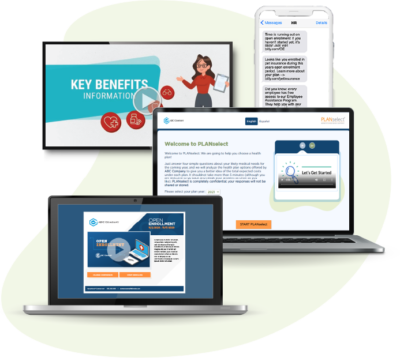
Financial wellness has long been a hot topic for employees and employers even before millennials started taking jobs while saddled with huge student debt amounts. With tax season mostly over, there’s no better time to discuss how you can help employees be more secure with their finances.
First, why is financial wellness a key benefit for employees? It’s simple. Providing employees with easy-to-use retirement savings plans and even methods of managing debt and personal expenses eases stress, which lowers incivility in the workplace and many other afflictions that can infect and destroy your office dynamic. According to a survey on financial education by the International Foundation of Employee Benefit Plans, 80% of workers said their financial issues “are somewhat, very or extremely impactful on their job performance.”
Now is the best time to talk with your employees about their financial wellness and the tools they need to improve their situations. Tax season is over, for the most part. For most employees, tax season is a kind of reckoning. They have to look at their expenses and their income for the past year, which leads to natural concerns about how to improve their financial standing for retirement and other life events down the road. Where should you, as an employer, step in to help your workers assuage their concerns?
Consider Common Financial Wellness Problems
 Employees may or may not be willing to discuss financial issues with you or with anyone. Finances are, at least here in the United States, almost taboo. As a manager, team leader, or executive, you can’t force people to reveal their true financial worries, but you can anticipate problems based on common trends around many other workplaces.
Employees may or may not be willing to discuss financial issues with you or with anyone. Finances are, at least here in the United States, almost taboo. As a manager, team leader, or executive, you can’t force people to reveal their true financial worries, but you can anticipate problems based on common trends around many other workplaces.
For example, if you happen to have millennials working for you—employees between the ages of 18 and 35 or so—you can bet student debt is a common concern. Workers young and old are concerned about retirement, as well. Also, consider other common financial problems many people struggle with: maxed out credit cards, underwater mortgages, not enough savings, etc.
You may favor private, one-on-one conversations where you can focus on one employee at a time and guide them to financial wellness benefits or other options, but since many people will be unwilling to bare their financial history with you, a company-wide, department-wide, or even team-wide meeting covering a few basics of what employees can do to combat common financial traps can be effective.
You Can Only Do So Much
According to a 2014 survey by the Society for Human Resource Management (SHRM), employees are looking to their employers more often for help managing their financial resources. Installing all-new employee benefits and packages to solve their financial problems isn’t easy and may not be viable for some companies, but educating employees with seminars, reading materials, lectures, or even video communication can go a long way even without comprehensive financial benefit programs. It might be time to think about implementing those benefit programs soon, anyway.






